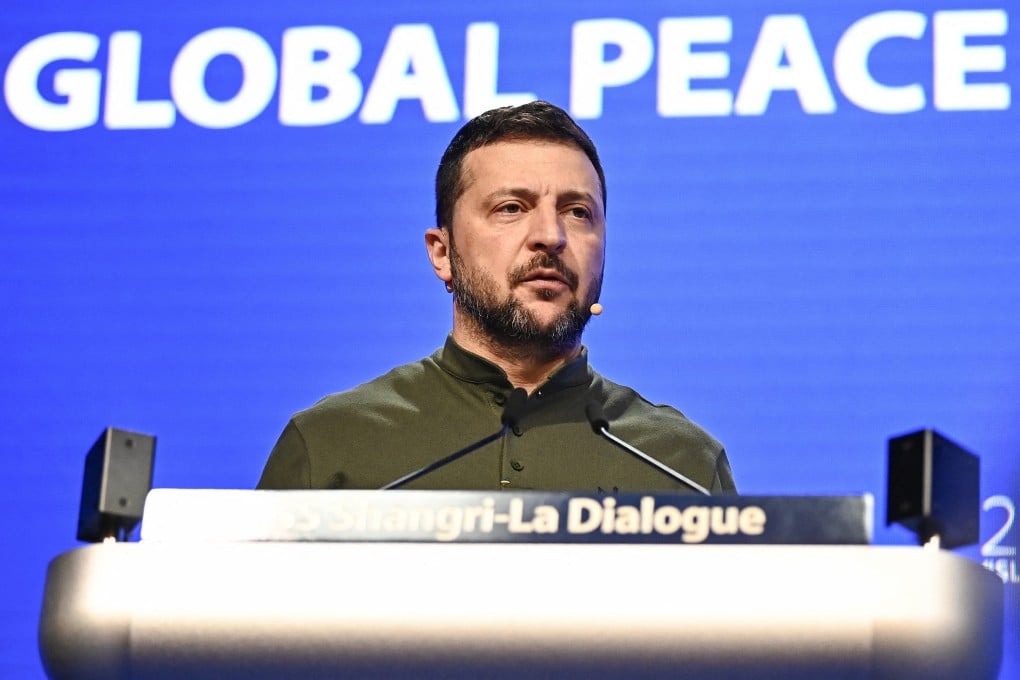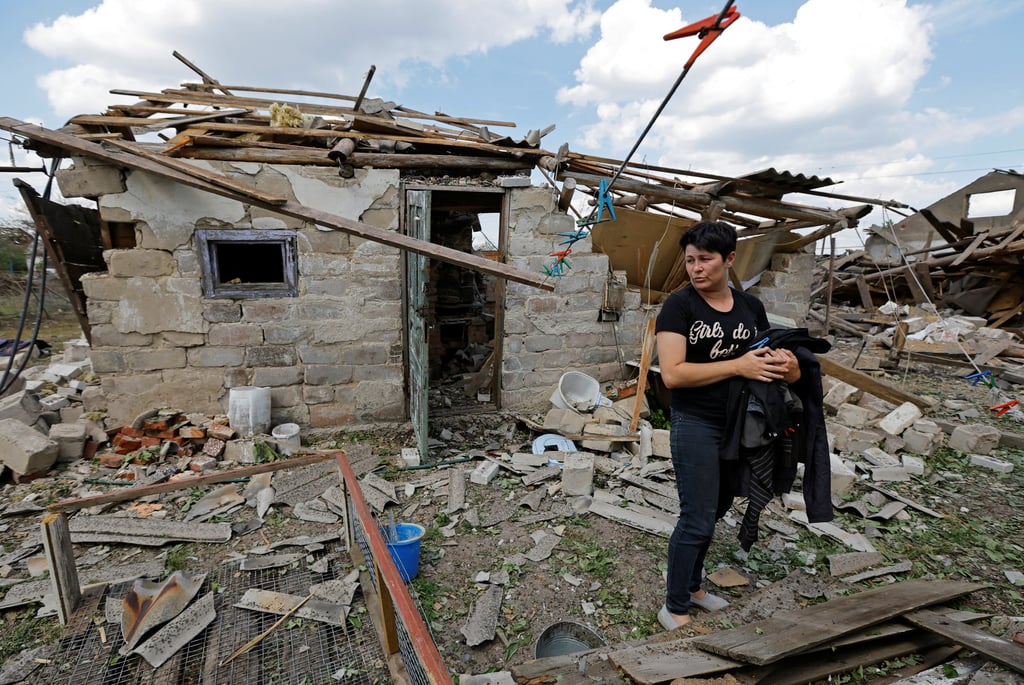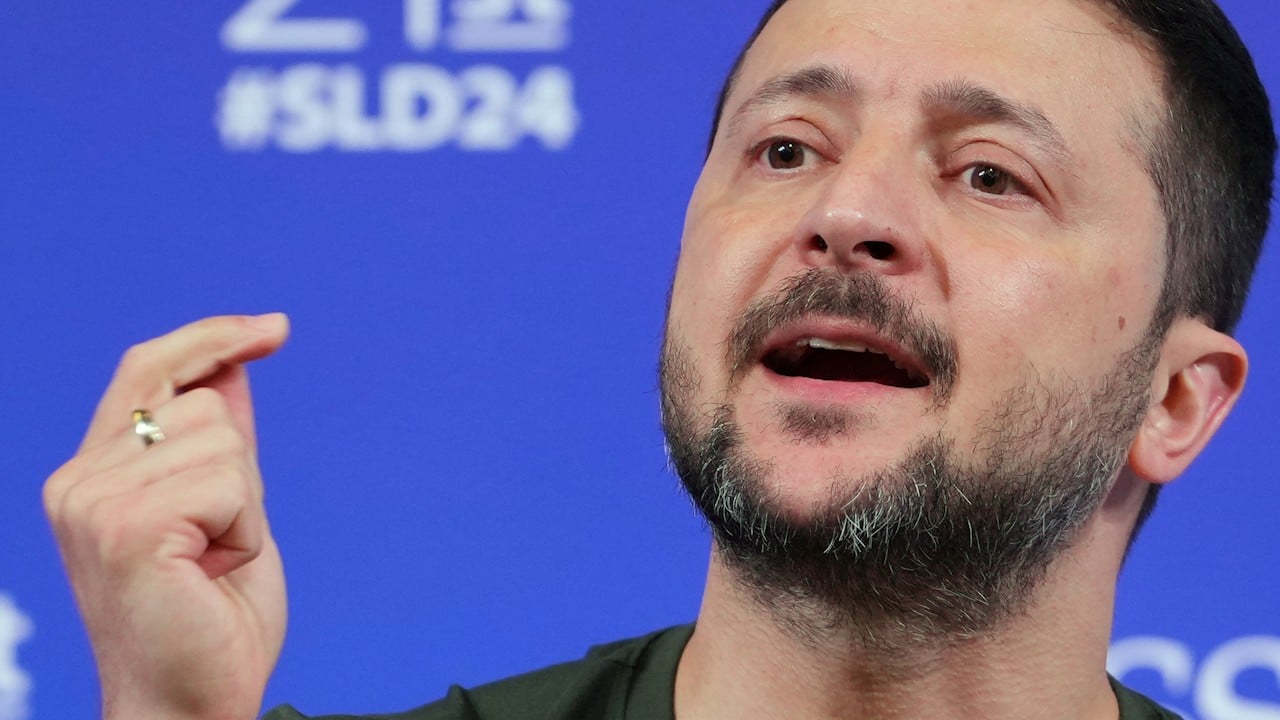Advertisement
Asian Angle | A lesson for Philippines on external lifelines, as Ukraine woos Asia for peace summit
- Ukraine’s Zelensky is going all out to boost participation for the coming peace talks in Switzerland, but support has been mixed
Reading Time:4 minutes
Why you can trust SCMP
2

As a global peace summit in Switzerland nears, Ukraine is stepping up efforts to court Asian attendance. President Volodymyr Zelensky made a surprise appearance at the recent Shangri-La Dialogue in Singapore, an annual gathering of defence and military officials from the region and beyond. In his working visit to the affluent city state, he spoke to new Prime Minister Lawrence Wong and President Tharman Shanmugaratnam.
Two days later, he flew to Manila, where he met Philippine President Ferdinand Marcos Jnr, the keynote speaker at the regional security forum. This is Zelensky’s second trip to Asia after he upstaged last year’s G7 Summit in Hiroshima, Japan, to canvas support from among powerful wealthy countries for his besieged nation.
The Shangri-La Dialogue gave the embattled leader an excellent platform to pitch his country’s cause among Asia’s leaders. Greater Asian participation will raise the appeal of the coming peace assembly, projecting it as inclusive and enjoying broader international backing.

Beyond the West, Ukraine struggled to get its message across to other countries, especially in the Global South. While the impact of the Russia-Ukraine war is felt globally, especially in the fuel, food and fertiliser markets, other countries are either too preoccupied with pressing domestic issues or simmering hotspots in their backyards to have extra bandwidth to deal with a raging war in a distant land. Three years into the full-scale carnage, the causes that led to and further the conflict and how best to respond to it remain debated. That the Ukraine war may spread elsewhere or analogies that it may provide a template for other flashpoints stoked fears. This coloured and polarised views towards attempts to terminate hostilities.
This said, developing countries are not mere bystanders. In peace meetings last year and this year, delegates from Asia, Africa and Latin America were present. Emerging powers such as Brazil, China, India, Saudi Arabia and South Africa did express interest in facilitating and mediating between the combatants, but getting Kyiv and Moscow at the same table remains elusive. Belarus, Turkey and several African countries also tried to broker a deal.
Voting patterns at the United Nations General Assembly on resolutions relating to Ukraine show overwhelming support for the country’s sovereignty and territorial integrity in the face of Russian aggression and annexation of occupied territories. However, global opinion was divided on suspending Moscow from the UN Human Rights Council. Disinviting Russia remains a sticking point and is a reason why some countries are shying away from the coming Swiss peace conclave.
China is not attending the meeting and has flatly denied Zelensky’s accusations of encouraging others to follow suit. Failure to get Beijing’s attendance is a big setback, but not unsurprising given China’s stern position on the war and deepening ties with Moscow. Russian President Vladimir Putin visited Beijing last month. China wants a political settlement that brings the two key protagonists into the same room, which Kyiv shuns for now. As Ukraine and its allies isolate and pile pressure on Russia, Zelensky has argued that China’s posture only prolongs the war.
Advertisement

